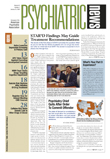Among its last acts before adjourning for the year, Congress extended the original Patriot Act until February 3 after the House refused to accept a six-month extension. The move prevented expiration of 16 provisions of the 2001 antiterrorism law that otherwise would have ended December 31, 2005.
The short extension gives opponents of some of the law's provisions, including APA, more time to push for placing some additional controls on the use of surveillance by federal security officials.
The limited extension was approved after a bipartisan filibuster threat in the Senate blocked a final compromise that followed the two chambers' passing different versions of the bill. The compromise bill that resulted from reconciling the differing Senate and House versions would have permanently extended 14 of the 16 expiring provisions of the antiterrorism law and sunsetted two others on December 31, 2009. At the center of the debate in the Senate was the strength of civil-liberty protections included with the temporary extensions of the government's authority to use roving wiretaps and seize business records in terrorism investigations.
The last-minute Senate opposition stemmed, in part, from revelations of eaves-dropping by the National Security Agency, with President Bush's approval, on U.S. citizens in contact with foreign terrorist suspects.
APA joined the American Psychological Association, American Academy of Child and Adolescent Psychiatry, American Psychoanalytic Association, and American Counseling Association in alerting their members and members of Congress about privacy concerns related to the Patriot Act.
APA backed earlier language in the bill that the Senate had supported on business records offering greater protections to medical records, including mental health records. But some saw those provisions as watered down in the compromise bill that emerged from a congressional conference committee.
Among others expressing concerns over the business and medical record provisions in the final compromise bill, the American Civil Liberties Union (ACLU) criticized it for allowing the FBI to demand records, including library, medical, educational, and tax records, of anyone connected to a terrorist investigation. The final compromise bill would have allowed physicians who received FBI requests for a patient's medical records to tell a lawyer and allow a limited right to challenge it in an intelligence court. But few physicians are likely to go to the expense of challenging the orders, according to the ACLU.
APA also was concerned about an underlying gag order in previous versions that would bar health professionals, including psychiatrists, from informing their patients when their confidential health records are demanded. The compromise legislation would have left in place the automatic gag order.
It remains unclear whether the extra time to negotiate a longer-term extension will yield results for those looking to change the law. House GOP leaders have expressed little interest in further changes to the final compromise bill, and a majority of the Senate signaled support for the bill in another vote.
An analysis of the compromise bill Congress is considering is posted at<www.aclu.org/safefree/general/22429leg20051207.html>.▪
